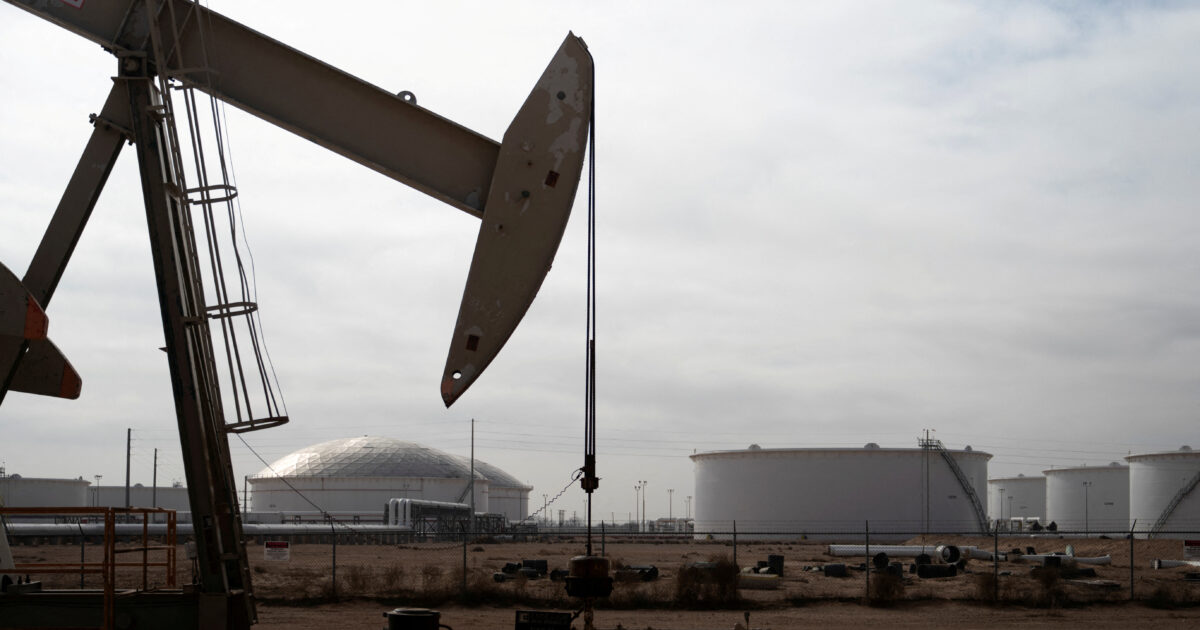The situation in Middle East It was further escalated during the weekend (14 – 15 June 2025) while the markets were closed. The Israel He launched mass attacks in Iran, which in turn responded with rocket fire.
According to the Israeli government under Benjamin Netanyahuits purpose is to destroy the Iranian nuclear program. Following the fall of international markets at the end of last week, the Middle East war is likely to re -affect markets worldwide at the beginning of the week. On Friday, June 13, 2025, Germany’s top index completed the transactions with clear losses at 23,516 points. The downward trend is likely to continue on Monday, as DAX remains on negative territory on the platforms of off -board trading platforms, Handelsblatt notes.
There is currently no indications of loosening the situation. Today (June 16, 2025) after midnight, Israel again attacked targets in Iran.
At the heart of the interest remain the prices of energy products, and especially the price of oil. She had already increased significantly as a result of Israeli attacks. Additional attacks on crude oil storage facilities and refineries in Iran are likely to have pushed prices to further rise.
Iran, for its part, continues to threaten to rule out the significant strait of the Ormuz, through which a significant proportion of world crude oil is transferred – however, this could also mean that the country itself could partially interrupt access to the world market.
The price of oil continued to climb the first Asian transactions. Increased by 1%, having already won 13% last week. Brent crude oil was $ 75 per barrel (159 liters). The price of US oil WTI increased by 1.2% to $ 73.88 per barrel.
Natural gas prices have also increased abruptly after the destruction of several facilities in a significant Iranian gas field. This could particularly affect European markets.
The sharp rise in energy prices will have a particular impact on the global economy if the highest price level becomes permanent. The Israeli army and politicians have already pointed out that the army’s attacks on Iran could be pulled for weeks. Therefore, it is very likely that oil and gas prices will not be reduced again.
This in turn raises inflation rates worldwide and slows down economic growth, because companies have to pay higher market prices for raw materials and consumers have to spend more money on goods and energy.
In addition to the war in the Middle East, investors are now considering financial data from China and new wage trends in Europe. Only sporadic stimuli are expected on the part of business.
US Stock Exchange: Dow Jones, S&P 500 and Nasdaq
US financial markets have been preparing for escalation in the Middle East on Friday. The leading US index, Dow Jones, lost 1.8% on Friday and closed at 42,198 points. The wide base index S&P 500 fell 1.1% to 5977 points. Technologically heavy Nasdaq fell 1.3% to 19,405 points.
Stock Exchange in Asia: Nikkei, Topix and CSI 300
Asian stock markets maintained their nervousness today, while oil prices have increased again. The Japanese stock market had a more stable voltage today. In Tokyo, the Nikkei index of 225 points rose 1% to 38,193 points and the broader Topix index rose 0.6% to 2,772 points. The Shanghai Stock Exchange remained almost unchanged at 3,378 points. The indicator of the most important companies in Shanghai and Senzen remained stagnant at 3,862 points.
War between Israel and Iran
Analysts and traders disagree with how violence in the Middle East will affect markets. While some point out that global stock markets have become accustomed to a higher level of volatility and uncertainty as a result of US President Donald Trump’s economic policy, others warn of a new, constant conflict with an impact on stock markets.
Trump himself urged a diplomatic agreement between Jerusalem and Tehran at the weekend, but also stressed that the US would not intervene militarily for the time being.
The US military has so far been confined to the support of Israeli anti -missile defense and to ensure its own bases in the region.
Whether it can exert international pressure on Israel and Iran will, for example, appear at the G7 summit in today.
China’s economy
Today there will be various financial data from China. The National Statistical Service will publish how prices in the real estate is evolved from the crisis. In April, they decreased by 4% compared to the previous year, and prices were reduced before. The unemployment rate is also published, which stood at 5.1% in April. The evolution of retail sales and China’s industrial production are also important for investors.
Wage tendencies
The EU Eurostat Statistical Service publishes data on salary trends in the eurozone in the first quarter. In the fourth quarter of 2024, salaries increased by 4.1% compared to the same period last year.
Increasing wages may indicate increasing inflationary pressure, which affects monetary policy and interest rates and, therefore, has a direct impact on the evaluation of shares and bonds.
Exposure of OPEC
The enlarged Opec Plus oil cartel publishes its monthly report, which analyzes developments in the oil market, provides for demand trends and publishing volumes of Member States.
Due to Israel’s attacks on Iran, the price of oil has increased more to one day than ever since March 2022.
